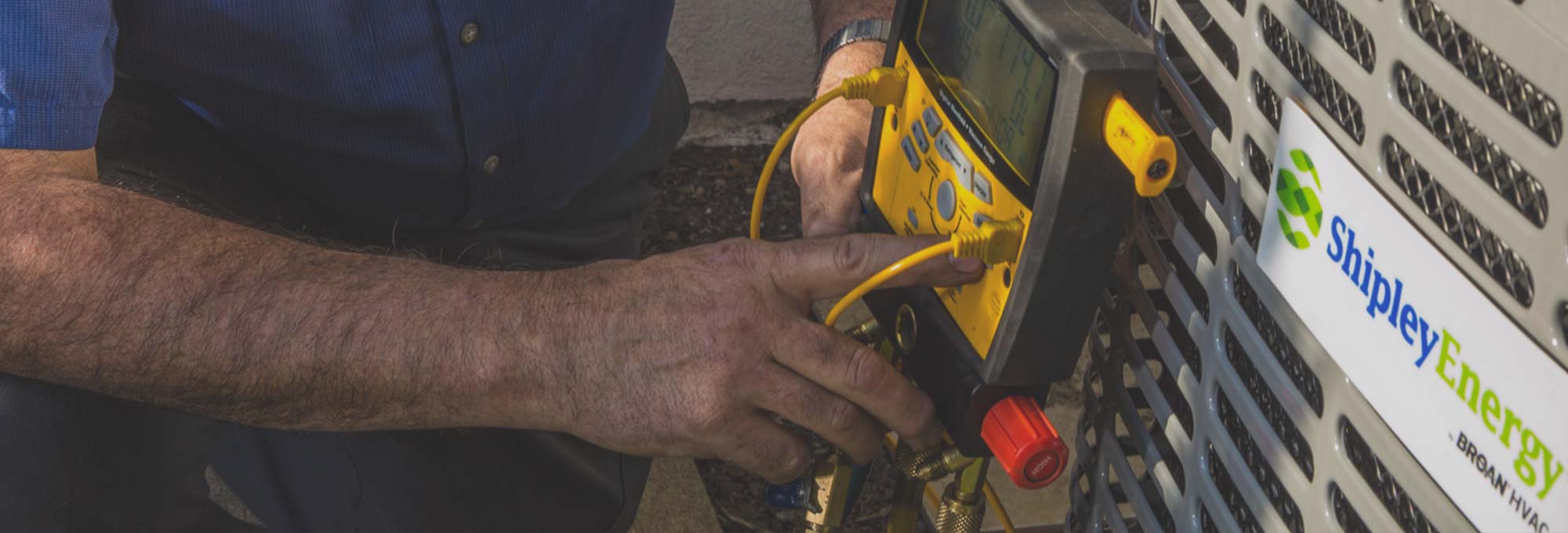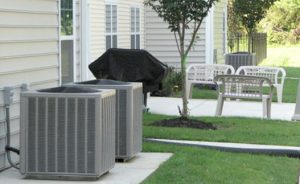
Table of Contents
In its most basic form, a heat pump acts very much like a refrigerator. When it’s cold outside, a heat pump pulls exterior heat inside. When it’s warm outside, it reverses directions and acts like an air conditioner, removing heat from your home. A compressor circulates refrigerant that absorbs and releases heat as it travels between the indoor and outdoor units. The indoor unit is called an air handler and the outdoor unit is very similar to a central air conditioner, but is called a heat pump.
A heat pump is simply an AC unit with additional components built-in to allow the refrigeration to flow in the opposite direction and transfer heat to the home. Unlike a furnace, a heat pump does not generate heated air. Instead, it transfers heat from one location to another. The two types of residential heat pumps are air-source and geothermal. An air-source pump moves heat between the air inside your home and the outside air. A geothermal pump, also referred to as a ground-source pump, moves heat between the ground and the inside air.
When cooling, a heat pump functions more like a traditional air conditioning unit. It absorbs heat from the indoor air and releases it via an outdoor unit. A model with a Seasonal Energy Efficiency Ratio (SEER) of 16 or higher can cool the interior of a home just as well as a central AC system.

Adding a heat pump to your home has several potential benefits. A heat pump:
A typical residential heat pump can last 15 years or longer with proper maintenance. Older units can begin to show signs of wear after a decade or so, while newer models typically have an extended lifespan. Factors that can shorten the lifecycle of a heat pump include:
Adding a heat pump to your home can often save you from 25-75% on your monthly utility bills. Heat pumps can work with your existing HVAC appliance or replace them completely, so you’ll always have reliable heating and cooling whenever you need it. Heat pumps can also be less expensive to operate than oil boilers or gas furnaces and generally require less maintenance.
As with all products, the lifespan will vary. However, an air/water or liquid/water heat pump from a reputable manufacturer should last between 20 and 30 years. Heat pumps, if correctly installed, require little maintenance.
An advantage of a heat pump is that instead of generating heat, it moves heat which greatly increases your energy efficiency. Another thing to keep in mind is that heat pumps are powered by electricity; you can save quite a bit of money on annual fuel consumption. With all of these positives, it is no wonder that heat pumps are rapidly becoming the most common choice for new and existing homes!